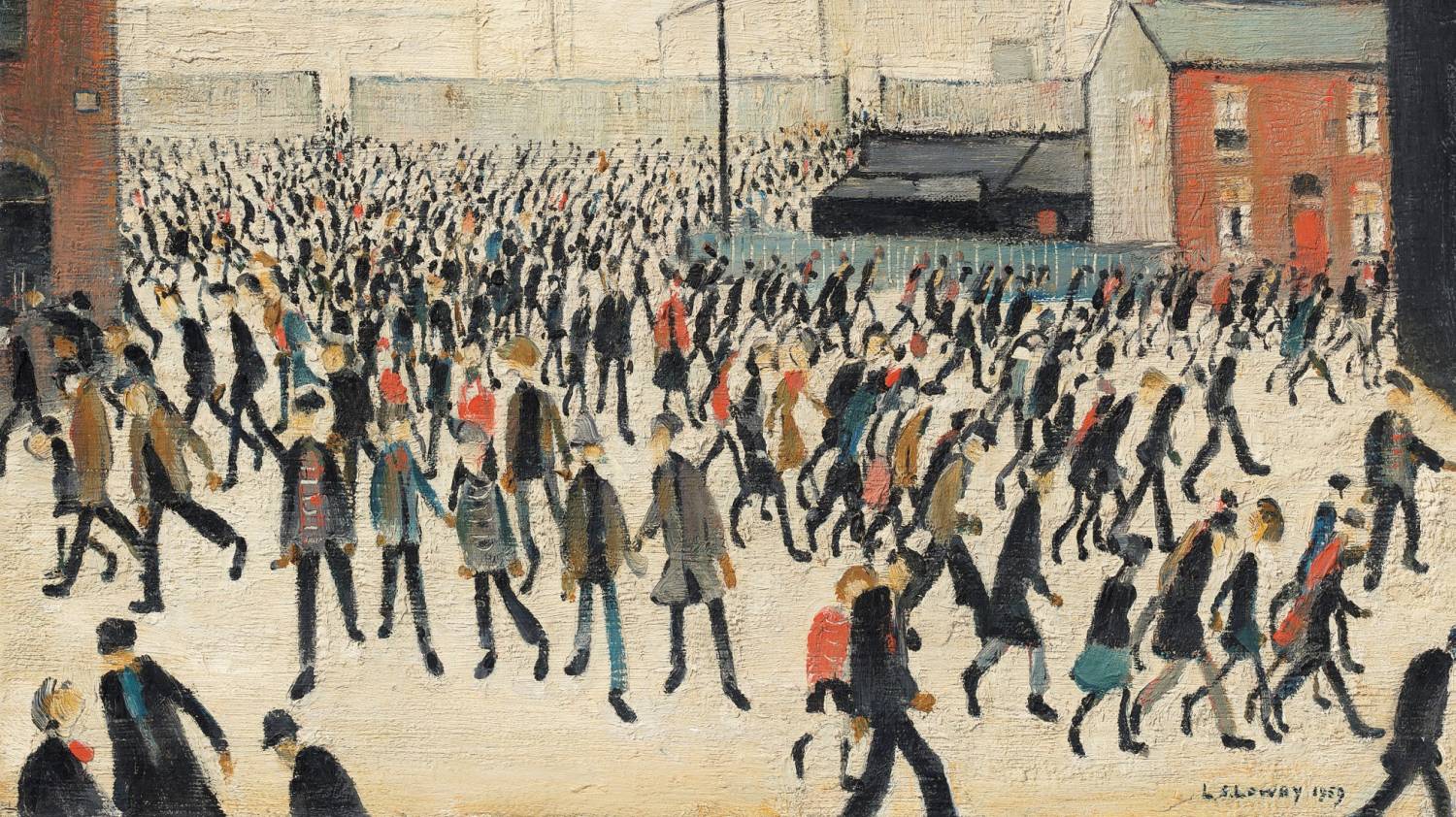6 Apr 2021
Common Folk

People wearing ornaments and fancy clothes,
carrying weapons,
drinking a lot and eating a lot,
having a lot of things, a lot of money:
shameless thieves.
Surely their way
isn’t the way.
Reciting some passages from it in my reading diary, I realise a significant line of affinity that I share with the Tao Te Ching: an intense disdain for busy-bodies, pragmatists and the rich, and a profound sense of care for the most common and “unimportant” things.
This pleases me very much. We can complain about “common folk” being deceived fools, too stupid for their own good, but at least in all this they are honest, and not conceited. The common person goes about their life with no pretensions to doing—or being—anything else; they go to work unenthusiastically, cook meals for their children, care for their elderly parents, call up their friends, and go to sleep. In all of this, there is never any expectation of return, never any hope of recognition or reward, and a humble acceptance of the unremarkable everyday sacrifices that uphold our entire civilisation. There is something genuinely beautiful in this.
By contrast, careerist busy-bodies and networkers always act with at least some ingrained sense of superiority, some desire to sell themselves and their ego. This vanguard of the chattering middle and upper classes enter society with the misled impression that they have the power to control it. Having listened to their teachers, got good grades, and received their university degrees, and thereby dutifully obeyed the imperatives of the bourgeois order, they then make the crucial mistake of identifying this obedience with “their choice”. The chattering careerists, with an almost comic regularity, tragically project their egos onto the most impersonal of things: society, capital, and the labour market. They hold tight to the utterly futile dream, applying for graduate jobs which they will obviously never get while refusing to apply anywhere else, turning a blind eye to the poverty, squalor and exploitation that actually characterises their life, as well as the world around them.
Having reached this position in adulthood, those of the chattering classes either fully sign up to this undead careerist path, or they realise its error, leading to the widespread phenomenon of the middle-class “slacker” (of which one could arguably categorise myself), the person who has benefitted from the advantages of a middle-class upbringing and—ironically through these advantages—come to realise their empty promise. If the chattering classes are constantly riding a never-ending elevator always reaching for that Perfect Career (And Therefore Life!) which is always just out of reach, precisely because it is an illusion, the middle-class slacker leaps off the elevator to join the common folk on the shop floor below, to try and find a genuine exit from this hellhole with them. This is never easy, because the middle-class slacker is used to riding on elevators their whole life; being on plain, flat, horizontal ground is deeply disconcerting to them. Furthermore, they also discover the horrifying sight that the elevator had been powered by the grunts and groans of the immiserated common folk below this entire time—a fact they had always taken for granted. The slacker sees the emptiness on their faces, the marks on their skin, the beads of sweat on their hairline; and yet they also see a rowdy conviviality, a laughter, alongside simple gestures of selfless kindness. Despite being on uncomfortable and unfamiliar terrain, the slacker thus begins to feel their previous emptiness dissipate within them; their hearts open, and are filled with love.
This is why it is the common folk, rather than the prosperous chattering classes, who are the most religious in any society: for it is they who most viscerally feel the brute determinism of life, the sheer necessity of self-sacrifice. It is precisely this necessity of sacrifice that is never truly learnt by the chattering classes – instead they view society entirely through the lens of exchange: everything must have a return, an interest rate. Thrown into the conviviality of the common folk, the middle-class slacker is challenged to do away with all their ingrained habits of exchange, and instead learn to sacrifice: to learn what it means to truly give. When they learn that, they will realise they were one of that strange, borderless and impersonal collective of common folk the entire time; they will learn the beauty of the faceless and the generic.
* * *
So wise souls are good at caring for people,
never turning their back on anyone.
They’re good at looking after things,
never turning their back on anything.
There’s a light hidden here.
Good people teach people who aren’t good yet;
the less good are the makings of the good.
Anyone who doesn’t respect a teacher
or cherish a student
may be clever, but has gone astray.
There’s a deep mystery here.
Hence why I always have more time for common folk than the notable, smart and successful, even if I technically have more in common with the latter. Amidst the common folk there is never anything to prove – one just is who one is. The atmosphere is essentially egalitarian: the assumption is that whatever you do or say, you will still be one of us amidst the muck, still one of us struggling by, and so there is no need or desire to compete with one another. This doesn’t mean that every conversation is amazing and fulfilling, but that they are, at least, honest and genuine, and underlaid by a firm, shared ground of mutual trust and respect. This means that when an intellectual conversation does somehow get sparked, it can develop in an authentic and above all truthful way.
Face to face with some Bright Young Thing From Graduate School who’s clued up on philosophy, however, I freeze: because I know all too well how easy it is to get drawn into stupid dick-swinging contests – conversations whose content is purely the recitation of the “right” sources and names, in order to appear intelligent and, by virtue, superior. These conversations are never fulfilling because the primary concern of each participant is not the production of a shared goal, but simply not to appear like an idiot. Unsurprisingly, this is completely counter-productive to the task of raising collective consciousness. Anxious and untrusting of each other, the conversation degenerates into a charade, subordinated entirely to appearances and self-interest. Unable to open themselves up and loosen the tight security systems of the ego, the truth which is always latent and indiscernible in any situation/conversation is prevented from coming to light; instead what we get is the tedious and undead recitation of facts and soundbites pulled from elsewhere. (Faced with these situations, I usually find the best response is to stay silent, and quietly slink off with all the other bored observers of this dick-swinging contest to talk about something that actually matters.)
Reflecting on this, I offer the following conclusion: in order to get to the stage where intellectual discussion feels genuinely enthralling and productive, one must pass through the “common” or “base” stage first – one must be willing to expose and humiliate oneself in front of the other. In short, only when both are bathed in filth and excrement can two people, facing each other, have a worthwhile intellectual conversation.
This is essentially what I have with Nick and Alex: together us three have been through the highs and the lows, seen each other at our absolute worsts, and it is precisely these acts of mutual debasement and sacrifice—in other words, a true and eternal friendship—that allow us to intellectually converse in a way that feels true and genuine. All the heavy, stifling load of egotism and self-importance have been long dropped at the door, allowing the intellect to run free.
If you think being intelligent makes you a “superior” person, then, you are still clinging all too tightly to that object that you ultimately must renounce: the ego. The development of intelligence is not the simplistic movement up a hierarchy (this is an illusion fostered by academic qualifications), but rather a paradoxical—some would say divine—movement that is simultaneously an ascension and a descension. The person digging deep into the grounds of her trauma, for example, feels as if she has been struck by the light; she feels refreshed, anew, with a new clarity of understanding and purpose regarding her life. And yet, as she experiences such beatitude, she is surrounded by dirt and soil, the raw matter of the cosmos, all the traces of her pain and suffering, her traumatic memories, worse times. This, however, is not a contradiction – rather, it is precisely what makes her enlightenment true, genuine. To truly move up is to, simultaneously, move down.
It is this dialectic of high and low that helps explain why Mark Fisher was revered so widely: because unlike all the trendy social theorists who lurk the conference halls of academia, he was flagrantly open in his acts of self-debasement. In reviewing Girls Aloud singles and Terminator films, he was essentially destroying any hope of appearing a “serious”, “highbrow” or “important” critic, or in touch with any of the hip trends in academia, cultural criticism, and so on. But this was also what endeared us to him, for it was an essentially proletarian, or “common” sensibility – for if this is what he was listening to or watching, why pretend otherwise? Why not just start there? This hard-nosed prole sensibility – a kind of unsentimental “realism”, for wont of a better term – is often corrupted into a reverence for “common-sense” and the obvious, but in essence it need not be. It is not the demand to know one’s place, to stay stuck writhing in the dirt of the ground, but the knowledge that one can only stand tall thanks to the firm and dirty ground they compress beneath them. Indeed, understood correctly, it is neither a base anti-intellectualism, nor a cloying middle-class desperation to keep up appearances, but instead a plain-clothed commitment to the Truth. It is a commitment to start from where one brutally and totally is, warts and all: to genuinely see who and where they are, rather than, as the chattering classes are wont to do, turn a blind eye.
After all, the Now is all there is; each and every one of us is happening for both the first and last time.
Start there.
